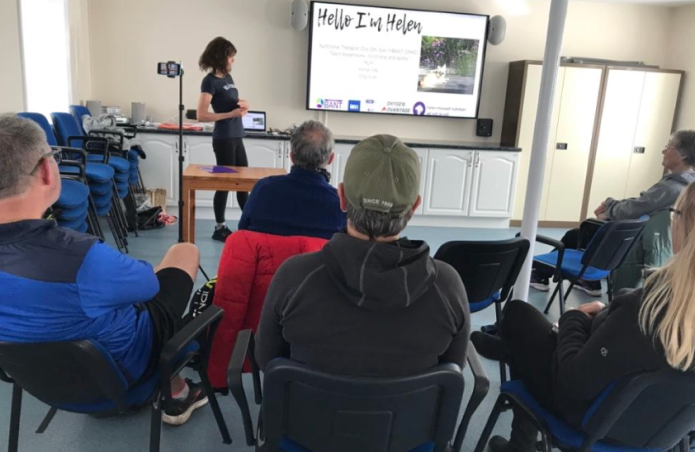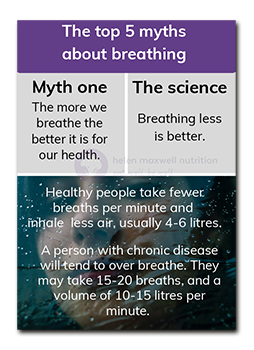

Breathing is a complex process involving three key components which the exercises I teach are designed to address:
I teach a lot of the science as I teach you the breathing exercises. You can also download my ‘top five myths’ about breathing below.


Signs that your breathing may be disordered or that you need to improve your breathing include.







